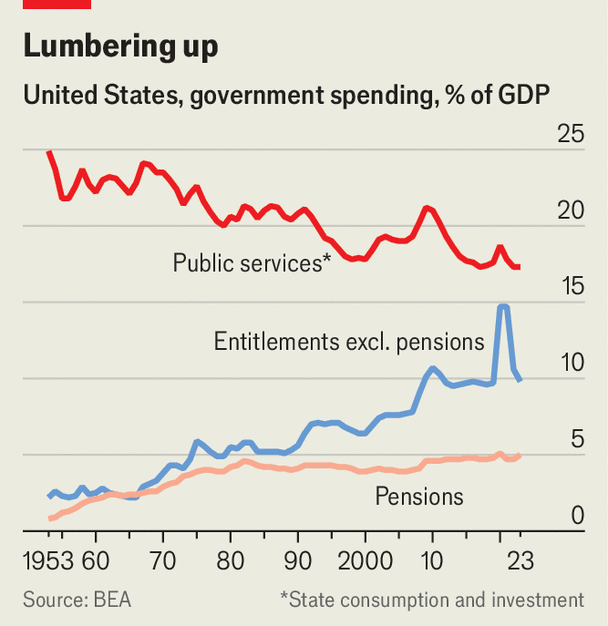Says The Economist. The authors argue that falling state capacity, incompetence, corruption, and transfer/entitlement spending, which crowds out public investment and services, are to blame. Update: Related, in VoxEU, Martin Larch and Wouter van der Wielen argue that [g]overnments lamenting a stifling effect of fiscal rules on public investment are often those that have a poor compliance record and, as a result, high debt. They tend to deviate from rules not to increase public investment but to raise other expenditure items.
Topics:
Dirk Niepelt considers the following as important: Entitlement, Fiscal policy, Notes, pension, Public investment, State capacity, Transfer, United States
This could be interesting, too:
Dirk Niepelt writes Does the US Administration Prohibit the Use of Reserves?
Dirk Niepelt writes “Report by the Parliamentary Investigation Committee on the Conduct of the Authorities in the Context of the Emergency Takeover of Credit Suisse”
Dirk Niepelt writes The New Keynesian Model and Reality
Dirk Niepelt writes Urban Roadway in America: Land Value
Says The Economist. The authors argue that falling state capacity, incompetence, corruption, and transfer/entitlement spending, which crowds out public investment and services, are to blame.

Update: Related, in VoxEU, Martin Larch and Wouter van der Wielen argue that
[g]overnments lamenting a stifling effect of fiscal rules on public investment are often those that have a poor compliance record and, as a result, high debt. They tend to deviate from rules not to increase public investment but to raise other expenditure items.



